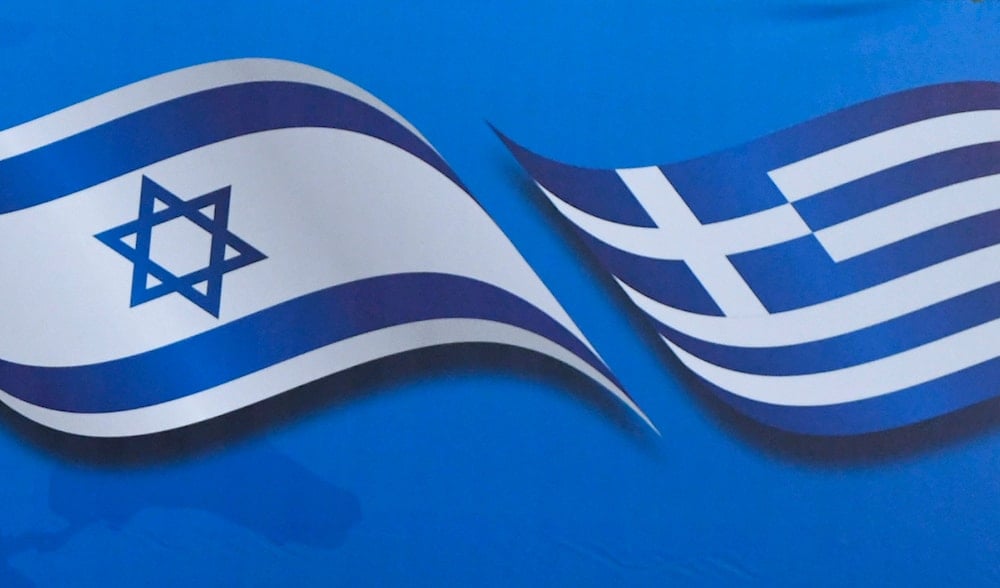Greece, 'Israel' sign deal on seabound green electricity corridor
Greek Energy Minister Theodoros Skylakakis and Israeli Energy Minister Eli Cohen signed the agreement during Cohen's visit to Greece.
-

Flags of Greece and "Israel" are displayed in an "Israel"-Cyprus-Greece trilateral summit in occupied al-Quds, Monday, Dec. 7, 2021. (AP)
The Greek Ministry of Environment and Energy announced on Monday that Greece and "Israel" have signed an agreement aimed at enhancing regional energy stability and advancing innovative energy projects in the Eastern Mediterranean and the European Union.
Greek Energy Minister Theodoros Skylakakis and Israeli Energy Minister Eli Cohen signed the agreement during Cohen's visit to Greece, the ministry stated.
"The creation of a 'green' electricity corridor from Israel to the EU via Greece will be a project of strategic importance for the Eastern Mediterranean region," the Greek ministry said.
A central component of this agreement is the development of the Great Sea Interconnector, a high-voltage direct current (HVDC) submarine power cable designed to connect the power grids of "Israel", Cyprus, and Greece.
Upon completion, it is expected to be the world's longest and deepest HVDC interconnector, spanning approximately 1,240 kilometers and reaching depths of up to 3,000 meters.
Read more: Greek PM assures Netanyahu of 'Greece's support for Israel'
The EU has recognized the strategic importance of this project, designating it as a Project of Common Interest (PCI) and providing financial support.
In January 2022, the European Commission approved €657 million under the Connecting Europe Facility (CEF) to fund the EuroAsia Interconnector.
Human rights concerns
The project has been scrutinized by human rights advocates and organizations for reinforcing "Israel's" occupation policies.
In 2018, the European Coordination of Committees and Associations for Palestine (ECCP) raised concerns that such energy deals could entrench "Israel's" control over Palestinian territories.
Moreover, reports have noted that "Israel's" electricity grid does not distinguish between infrastructure within its 1948 borders and settlements considered illegal under international law.
This has raised ethical questions about the involvement of foreign companies in "Israel's" renewable energy projects, as their investments might inadvertently support the expansion of such settlements.
Read more: Israeli settler councils drafting West Bank 'annexation' plan

 2 Min Read
2 Min Read








